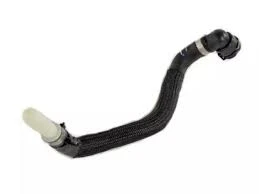Understanding Low Pressure Fuel Hose Characteristics and Applications for Efficient Fuel Systems
Tet . 31, 2024 21:58 Back to list
Understanding Low Pressure Fuel Hose Characteristics and Applications for Efficient Fuel Systems
Low Pressure Fuel Hose Understanding Its Importance in Fuel Systems
In the intricate world of automotive engineering, the low-pressure fuel hose plays a vital role in ensuring that fuel delivery systems operate efficiently and safely. These hoses are designed to transport fuel from the tank to the engine's fuel injection system under relatively low pressure, typically under 15 psi. Understanding the characteristics and importance of low-pressure fuel hoses is essential for vehicle maintenance, performance, and safety.
Material and Design
Low-pressure fuel hoses are usually made from flexible materials like rubber or multi-layer composite materials that can withstand exposure to fuel and various environmental conditions. They often feature reinforcement layers to add strength and flexibility, enabling them to bend and maneuver within the engine bay without kinking. The design must also ensure that the hose maintains its integrity and does not degrade over time due to fuel exposure or temperature fluctuations.
Applications
low pressure fuel hose

These hoses are crucial in various applications, from standard passenger vehicles to high-performance race cars. In everyday automobiles, low-pressure fuel hoses connect the fuel lift pump to the carburetor or fuel injection system. In racing applications, they are often employed in fuel systems that require rapid fuel delivery and precise control, making their reliability paramount.
Common Issues
Despite their durability, low-pressure fuel hoses can be prone to wear and tear. Factors such as heat, exposure to oil and fuel, and physical damage can compromise their integrity over time. Common issues include leaks, cracks, and bulges, which can lead to fuel starvation or dangerous fuel leaks. Regular inspection and replacement are recommended to prevent such problems, ensuring the safety and efficiency of the fuel system.
Conclusion
In summary, low-pressure fuel hoses are an essential component of automotive fuel delivery systems. Understanding their function, construction, and potential issues can help vehicle owners maintain their vehicles effectively. Regular checks and proactive replacements can ensure that these hoses continue to perform optimally, safeguarding against fuel leaks and maintaining engine performance. Whether you are a car enthusiast or a casual driver, paying attention to your low-pressure fuel hoses can make a significant difference in your vehicle's reliability and safety.
